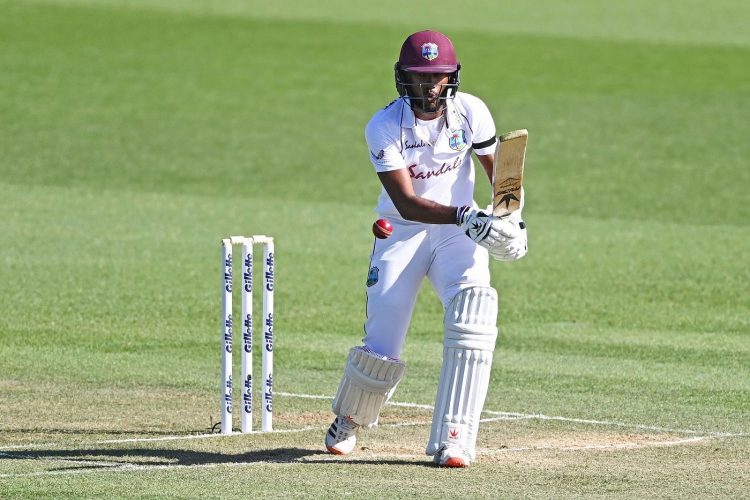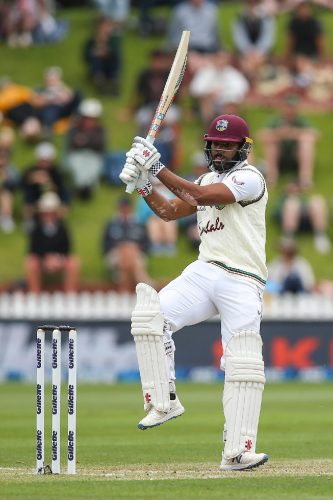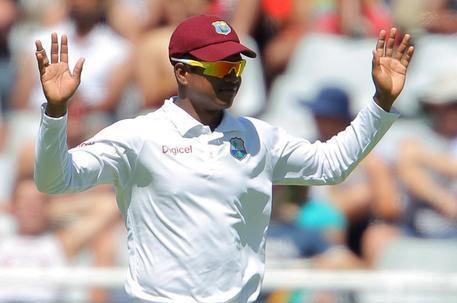The West Indies will tour Bangladesh for two Tests and three One Day Internationals later this month with second string sides.
This is after 10 players including both captains and vice-captains opted out of the tour.
Despite the massive withdrawal of the top players Guyana’s Leon Johnson still could not find a spot in either of the two squads.
This doesn’t add up.

Johnson’s success as a captain needs no explanation. He has led the Guyana Jaguars to a record-leveling five consecutive West Indies Championship titles and was set to make it six before the 2020 season was curtailed.
The left-handed batsman has shown his worth as a capable middle-order batsman in the Jaguars side with six centuries and 39 half centuries in 117 first-class matches where he averages 32.4.
The Guyana skipper has played nine Tests since his debut in 2014 and has scored two half centuries prior to his last in 2016.
At 33-years-old, Johnson has proven he is in peak form, notching up his highest first-class score of 189 not out last season against the Windward Islands and was Jaguar’s most prolific batsman with 472 runs. He finished the season eighth among the tournament’s run getters.

When the squad was announced early in the new year, Chief Selector, Roger Harper, appeared on the Mason and Guest radio programme soon after and was asked about Johnson’s consideration to lead the Test side in the absence of Jason Holder and Roston Chase.
He responded, “That of course was a consideration but the fact that we had Kraigg Brathwaite there, we decided to go with Kraigg.”
Harper noted, “When we looked at the squad we managed to put together, I think Kraigg is the most senior player having previously been the vice-captain [and] having been the captain on a number of occasions so that was an easy fit so to speak.”
However, Harper, back in November revealed that the decision to take away the vice-captaincy from Brathwaite and give it to Chase was in order for him to focus on his batting.
According to the chief selector, “We thought it important at this time for Kraigg Brathwaite, who has been vice-captain for the Test team for a while, to just pay a little more attention, focus a little more on his batting.”
Harper even acknowledged that Brathwaite has been struggling for form recently.
The 28-year-old had averaged 24.4 with two centuries and one half century in 2018. His average then dipped to 16.8 in 2019 where he failed to score a half century in a dozen innings. His average last year improved to 23.1 with a best of 75.
Despite being relieved of the vice-captaincy role, Brathwaite scored 21, 10, 0 and 24 against New Zealand and has failed to pass 25 in seven innings.
In Bangladesh batting has not come easy for Brathwaite, who averages just 13.12, his lowest in any country. From eight innings in Bangladesh, he has a high score of 50 and three ducks.
A brief perusal of the Test squad selected, finds it extremely difficult to see how Johnson’s pedigree and experience has left him without a spot.
Nkrumah Bonner has been with the West Indies on tours to England and New Zealand but has not yet transitioned into the Test side. In the first-class season last year he scored 523 runs. That season, he scored two of his three tons at that level where he averages 27.2.
Kavem Hodge’s average is not far from Bonner, sitting at 28.63 and he is also vying for a debut. Notably, Hodge scored less runs than Johnson in the first-class season with 454 runs and a best of 100. He also bowls left-arm spin to which Harper says that he expects him to play the role Roston Chase plays.
Meanwhile, West Indies selectors again showed faith in John Campbell, who’s 68 against New Zealand ensured him a spot as the first-choice opener despite having gone 10 innings prior to that without a half century.
In fact, Johnson was dropped after nine Tests and was tried as an opener while Campbell took 10 innings to score his first fifty. He has so far scored two half centuries in 22 innings and averages 25.8.
Johnson’s first-class record is also superior to Campbell, who averages 29.7 with five tons and 21 half centuries.
With the selectors short on experience, it should have been natural to select the most successful regional captain of the last six years, especially one who has shown his worth as a capable batsman.
What more does Johnson have to do to be selected? Are the selectors saying his international career is over? Are the conditions not suitable for him? Why give Brathwaite the captaincy when he has struggled with the bat when he was the vice-captain? Is it that the selectors opted to sacrifice Brathwaite’s batting just to lead the side?
These are questions that Harper and company need to answer urgently.





